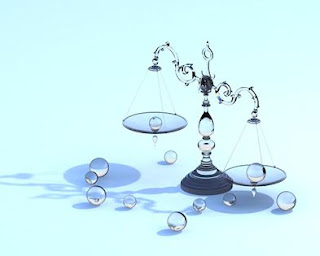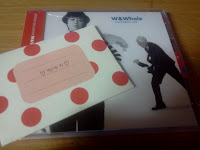Ye Ji Park / 111053 / 10b2
Mr.Garrioch
English Composition
December 1 2011
Reading Journal: The Body
As Ron Reiner cinematized Steven King’s The Body, he changed the title as Stand By Me. This newly-made name is absorbed by the majority with much familiarity. So why did Reiner change the title, and why do people feel better about the new version? The answer is simple; the most important theme in this novel, human relationship, is much better expressed in the new one. Throughout the book, as four boys approach to death, adventure, courage, and many other solemn themes, they carefully ask questions to their family and friends, “Will you stand by me?”

Family and friends are, perhaps, the closest relationships an individual can have. Four protagonists in The Body, however, are neither intimate nor amicable with their family. As I mentioned in the last journal (#7-1.Reading Journal: The Body), four boys have “flawed family” in common; Chris has a “really mean” father, and Vern “hated Billy [his brother] like the Arabs hate the Jews”. Teddy had an odd father who made him use glasses and hearing-aid by “shoving … Teddy’s head down against one of the cast-iron burner plates”. For Gordie, the death of his brother made his parents flounder in the wave of sadness and stay indifferent to Gordie. Reading first thirty pages, my first impression was that all boys, except Teddy, possessed emotion of hatred rather than affection to their flawed family. However, as continuing to read the book, I figured out that yearn for attentive, devoted, and loving family was embedded deeply in their heart. Gordie, for example, reproached himself for breathing while his brother was dead and thus making his parents mourn, and wailed over the fact that his father “hated him”. This shows that Gordie felt sorry for his lamented parents—despite none was his fault—and hoped for better .
 That Gordie was ignored by the parents because of his brother reminded me an essay I recently read; “Cinderella: Sibling Rivalry and Oedipal Conflicts”, by Bruno Bettleheim. The writer argued that why Cinderella story is being so loved by children was because it showed Cinderella’s success in rivalry with her stepsisters. He argued that all siblings fight with each other to gain parents’ attention, frequently misjudging their parents love siblings more. Personally, I quite agree with the claim; I have a sister, two years older than me. Three years ago, she entered a dorm school, and returned home every weekend. I was so angry that my mom always prepare bunch of delicious meals, and my dad, who works and often stays in Cheon-an (where takes nearly two hours from my home in car) only showed off on weekends. The whole family seemed to operate around my sister’s traces; when she came home, party started, and as she left, the house soaked into silence. Going through my sister’s three years in that dorm school, I matured enough not to judge my parent’s quantity of love in such childish standards. Still I remember how anxious, nervous, and irritated I was as thinking I was loved way behind my sister. My experience was merely a fantasy, but what Gordie suffered was reality; I can’t even imagine the depth of sorrow he had felt in his whole life.
That Gordie was ignored by the parents because of his brother reminded me an essay I recently read; “Cinderella: Sibling Rivalry and Oedipal Conflicts”, by Bruno Bettleheim. The writer argued that why Cinderella story is being so loved by children was because it showed Cinderella’s success in rivalry with her stepsisters. He argued that all siblings fight with each other to gain parents’ attention, frequently misjudging their parents love siblings more. Personally, I quite agree with the claim; I have a sister, two years older than me. Three years ago, she entered a dorm school, and returned home every weekend. I was so angry that my mom always prepare bunch of delicious meals, and my dad, who works and often stays in Cheon-an (where takes nearly two hours from my home in car) only showed off on weekends. The whole family seemed to operate around my sister’s traces; when she came home, party started, and as she left, the house soaked into silence. Going through my sister’s three years in that dorm school, I matured enough not to judge my parent’s quantity of love in such childish standards. Still I remember how anxious, nervous, and irritated I was as thinking I was loved way behind my sister. My experience was merely a fantasy, but what Gordie suffered was reality; I can’t even imagine the depth of sorrow he had felt in his whole life. As Gordie returned from his “The Body” journey, he expected his parents to show at least some kind of concern or curiosity over his whereabouts during past two days. But when Gordie’s mother confronted him at the kitchen, she asked “Where have you been?”, and even before Gordie talks about his specific traces, she sighed and sobbed that she “miss Dennis most in the mornings”. Then she just \stared out the window, her back to Gordie. Gordie was “trembling all over”, because he realized that even after his return from grand trip, his parents’ inattentiveness was still, and it would not change no matter how much time passes by.
This, maybe, is the reason Gordie kept Chris at arm’s length throughout his life. Gordie’s relationship with friends was substitute for the futile family, and this need was same for Chris and other two boys, too. But the arising question is; why did Gordie and other two boys, Vern and Teddy, drift apart while Chris did not? The reason lies behind “reliance”.
In the novel, when four boys encountered Ace and other Big Boys, Gordie and Chris stood against their threat to protect each other. When Ace asked Gordie to persuade his accompanies to back off Ray Brower’s body, Gordie replied, “Suck my fat one, you cheap dimestore hood”, despite he knew it would be his own “death warrant”. As Ace, in surprise and fury, claimed to “break both of Gordie’s arms”, Chris came forward and shoot the gun to protect Gordie. They both were feeling terrible fear; Chris’s face was “horribly pale”, still they discharged their responsibility to defend friend. Very contrastingly, all that Teddy and Vern did during the duel was to hide behind Gordie and Chris, waiting for the consequence. Gordie and Chris relied on each other, whereas Teddy and Vern asked for lopsided help.
 |
What we need here is
"MUTUAL" reliance,
not ONE person dragging the other. |
The reason I claim so confidently that whether they bilaterally depend or not is because I have experienced this by myself. I had one friend who had been rapidly close to me within three or four months. She was a funny, sociable, and lovely girl, but she easily fatigued and needed for somebody to help her. I, first, thought grateful of her trust and expectation on me and arduously engaged the role as her “personal counselor”. As time passed, however, I felt tired in listening and advising about all of her concerns, and slowly turned insipidly. Soon after, she realized my change, and now we contact much less than before. This memory makes me feel sad, still I do not regret since the change was inevitable. The axiom, “You scratch my back and I'll scratch yours”, was right. I assume it was same for Gordie; Gordie could not withstand Teddy and Vern, two unconditional depend-ers, as he himself needed help from others. Gordie and Chris, on the other hand, were supporters to each other that gave and received help mutually, which made them able to continue on their relationships.

Once I updated my Facebook status about human relationship that it is “complicated enough to kill my head”. My friend then left a comment; “Relation is the most valuable, most troublesome, most complicated, most pleasant, most sorrowful, most fragile thing in the world”. Now reminding this comment after finishing The Body, I agree to the claim wholeheartedly; Gordie’s relationship with his family was the most troublesome and sorrowful, still he had the most valuable and pleasant friend named Chris. My relationship with the friend who depended on me too much was most complicated and fragile one, still I have family and other friends who make me smile. Reading The Body was a great experience that made me feel anew gratitude and affection to those who are standing by me.





















